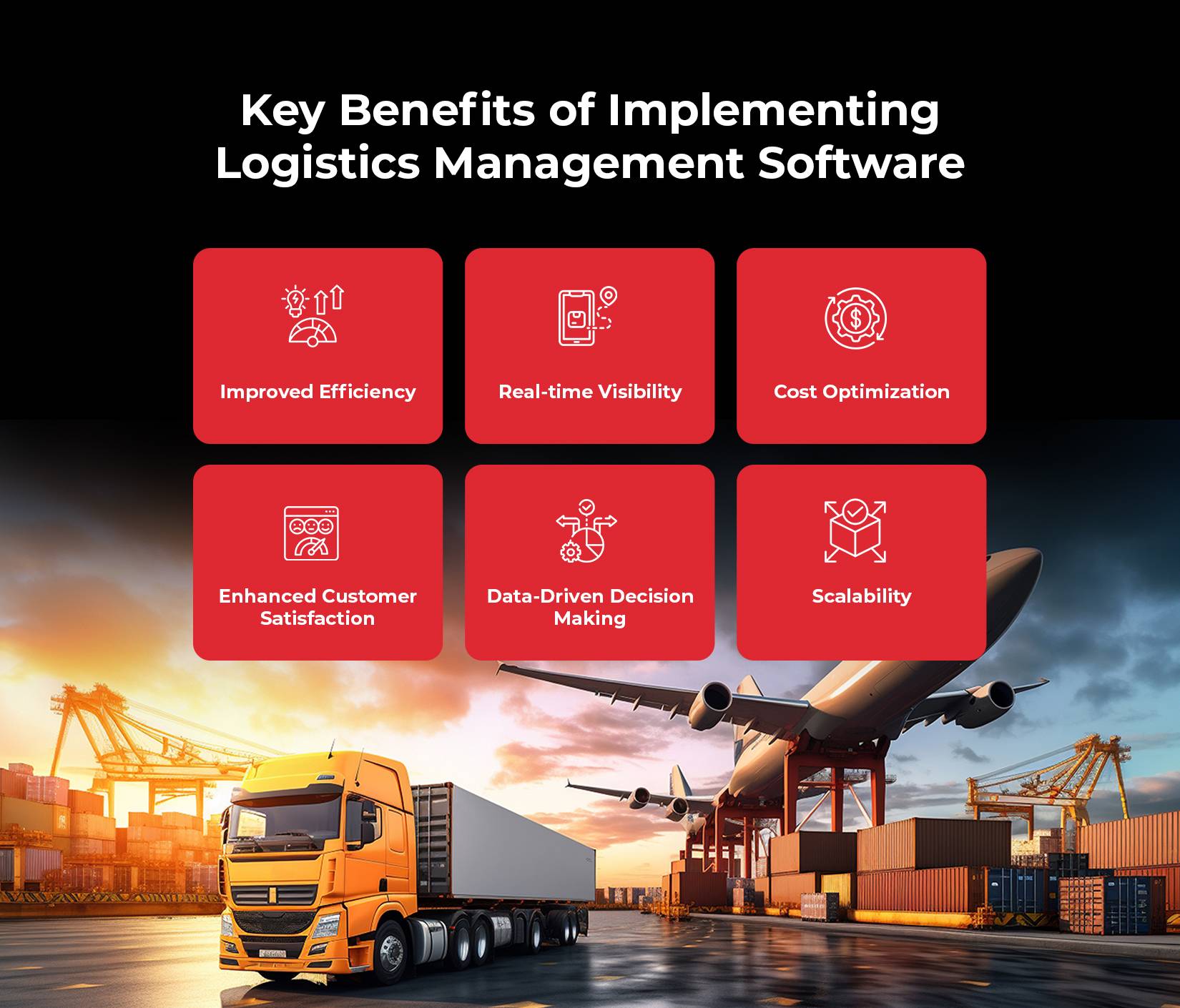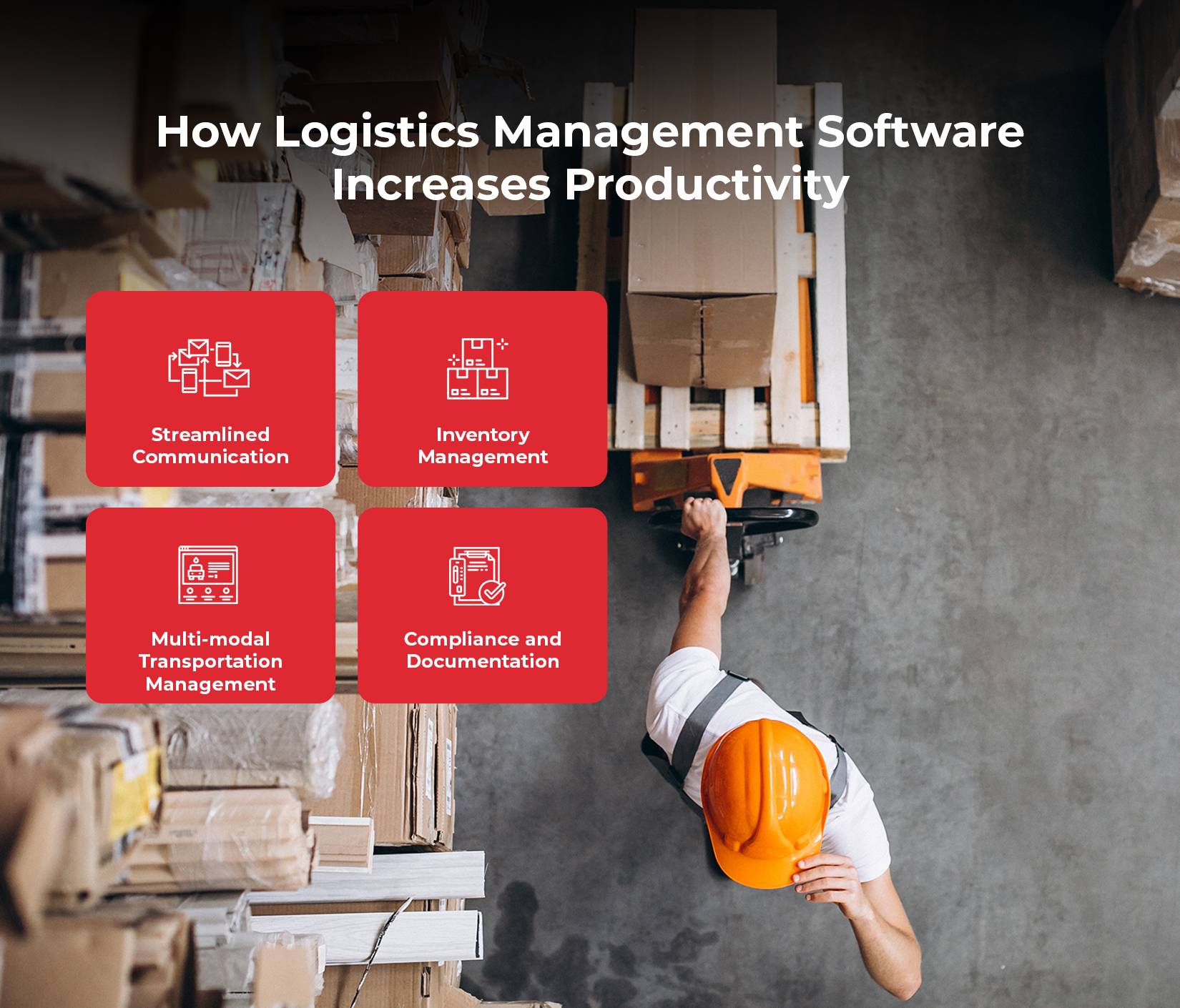
Maximizing Efficiency and Productivity: Benefits of Implementing Logistics Management Software
In the fast-paced world of logistics, efficiency and productivity are vital. Logistics Management Software (LMS) offers a solution to streamline operations, optimize workflows, and improve decision-making. With businesses striving to meet customer demands and reduce costs, implementing the best logistics software is no longer a choice—it’s a necessity.
This blog explores the benefits of logistics management solutions and highlights success stories from companies that have experienced a transformative impact.
What is Logistics Management Software?
Logistics Management Software refers to a suite of digital tools designed to oversee and coordinate the movement of goods, from warehousing to transportation and delivery. The software centralizes data, offering real-time insights, tracking, and optimization capabilities across the supply chain.
Logistics management solution integrates data analytics, automation, and real-time tracking to offer a complete overview of logistics operations. It gathers information from various systems, including inventory management, transportation management (TMS), and customer relationship management (CRM) systems. This data is then analyzed to provide insights on key areas such as route optimization, demand forecasting, and inventory control. By automating routine processes and delivering actionable insights, the software allows businesses to make faster, well-informed decisions.
According to Allied Market Research, the global logistics software market was valued at $10.54 billion in 2019 and is expected to grow to $17.76 billion by 2027, with a CAGR of 7.2% from 2020 to 2027. This growth is largely due to the rising need for advanced logistics solutions to handle increasingly complex supply chains, especially within the e-commerce and retail industries.
Key Benefits of Implementing Logistics Management Software

1. Improved Efficiency:
Logistics Management Software enables companies to automate manual processes. From inventory tracking to order processing, automation reduces human error and speeds up workflows. According to a 2023 study, companies using LMS saw a 20% increase in operational efficiency, leading to significant cost savings.
2. Real-Time Visibility:
One of the main advantages of the best logistics software is real-time tracking. Businesses can monitor shipments, deliveries, and vehicle locations in real time. This transparency allows for proactive decision-making, which is crucial in avoiding delays and ensuring timely deliveries.
3. Cost Optimization:
LMS helps businesses cut unnecessary expenses by optimizing route planning and vehicle allocation. For example, logistic management solutions can reduce fuel consumption by up to 15% through route optimization. This helps companies minimize transportation costs while improving delivery times.
4. Enhanced Customer Satisfaction:
With real-time tracking and timely deliveries, customer satisfaction increases. Studies show that 85% of customers are more likely to return if they experience on-time deliveries. Logistics management solutions provide customers with accurate delivery estimates, enhancing trust and loyalty.
5. Data-Driven Decision Making:
The integration of data analytics in logistics management software empowers businesses to make informed decisions. With the ability to analyze trends and performance metrics, companies can continuously improve operations. Plus plan inventory levels more effectively and respond swiftly to market changes.
6. Scalability:
Logistics management software allows businesses to scale operations effortlessly. Whether managing a small fleet or a global supply chain, LMS adapts to varying levels of complexity. The modular nature of the software enables businesses to add functionalities as they grow.
Success Stories: Companies that Maximized Efficiency with LMS
There are a lot many companies that have maximized their efficiency with LMS. Below are a few examples of the same:
– Mcdonald’s: The company has been able to improve resource utilization by 48% and deliver hot and fresh food to 35% more customers.
– Amazon: Through the use of advanced logistics software, Amazon achieved a 30% reduction in warehouse processing times, ensuring faster order fulfillment and customer satisfaction.
– Temple and Webster: It sustained 40% cost savings in last mile and logistics, increasing it by two fold with the help of a logistics management software.
How Logistics Management Software Increases Productivity

1. Streamlined Communication:
LMS acts as a communication hub for all stakeholders- warehouse teams, drivers suppliers and customers. This reduces the need for multiple communication channels, ensuring seamless information flow and reducing confusion.
2. Inventory Management:
With logistics management solutions, businesses can track inventories in real time. This prevents stockouts and and overstock situations, ensuring the right products are available when needed. A well-optimized inventory reduces holding costs and enhances supply chain efficiency.
3. Multi-Modal Transportation Management:
LMS can manage various forms of transportation—air, sea, road, and rail—under one platform. This flexibility allows companies to choose the most cost-effective and efficient transportation method, contributing to higher productivity.
4. Compliance and Documentation:
Managing compliance is often time-consuming. Logistics Management Software simplifies this by automating the generation of documentation and tracking regulations. With features such as e-documentation, companies can reduce paperwork by up to 25%, enhancing productivity.
The Role of AI in Logistics Management
The latest LMS tools incorporate Artificial Intelligence (AI) to enhance decision making. AI algorithms predict demand, suggest the best delivery routes and allocate resources efficiently. By leveraging AI, businesses can improve delivery accuracy by 95, reduce fuel costs and anticipate market fluctuations, keeping them one step ahead of the curve.
AI-powered logistics management solutions can also analyze customer behavior, helping businesses optimize inventory levels and reduce lead times. This data-driven approach allows companies to refine their processes continuously, boosting both efficiency and productivity.
Why Businesses Should Invest in Logistics Management Software
As businesses evolve, so do the complexities of supply chains. Implementing the best logistics software can offer significant competitive advantages, from reduced costs to enhanced operational efficiency. Moreover, logistics management solutions provide scalability, ensuring that businesses can expand their operations without increasing overhead costs.
In 2024, the global logistics software market is projected to reach $18.31 billion, with a compound annual growth rate (CAGR) of 8.5%. This growth underscores the importance of adopting technology-driven solutions in the logistics industry.
Conclusion
Maximizing efficiency and productivity is no longer a challenge with the right logistics management software. Whether you’re a small business or a multinational corporation, the benefits of adopting logistics management solutions are undeniable. By automating processes, optimizing routes, and offering real-time visibility, companies can achieve higher profitability, improved customer satisfaction, and long-term growth.
Invest in LogiNext Mile, the best logistics software today to stay ahead in the competitive logistics landscape. Click on the red button below to book a demo with us and learn more about our software.
46







@LogiNext